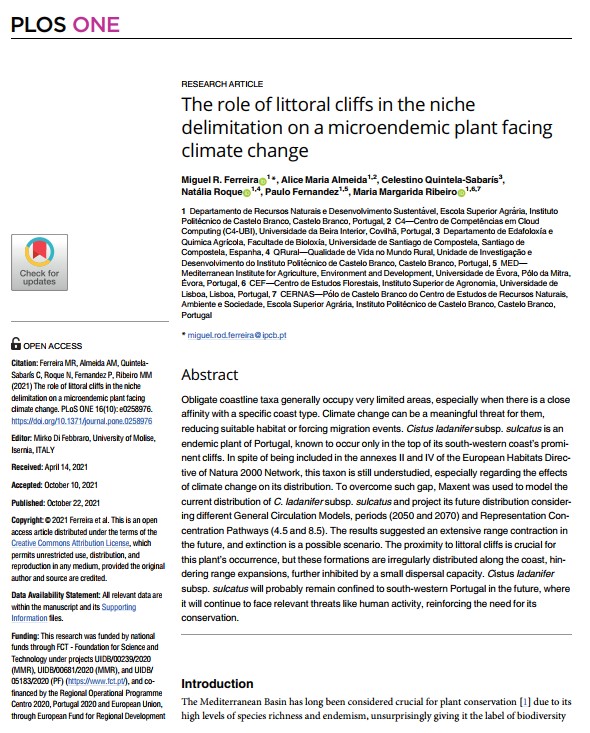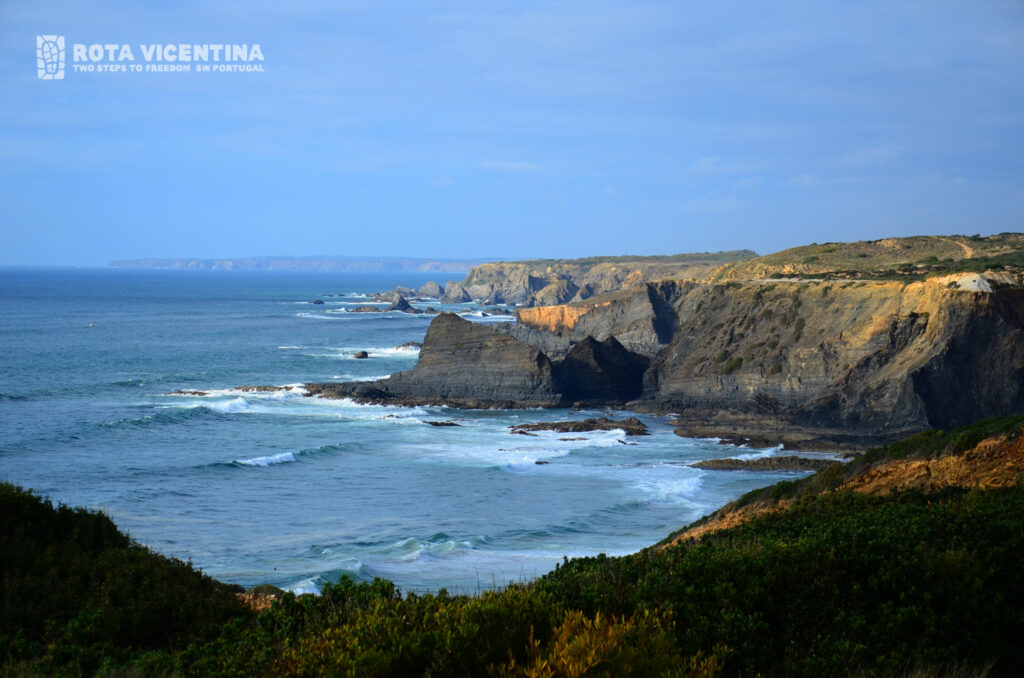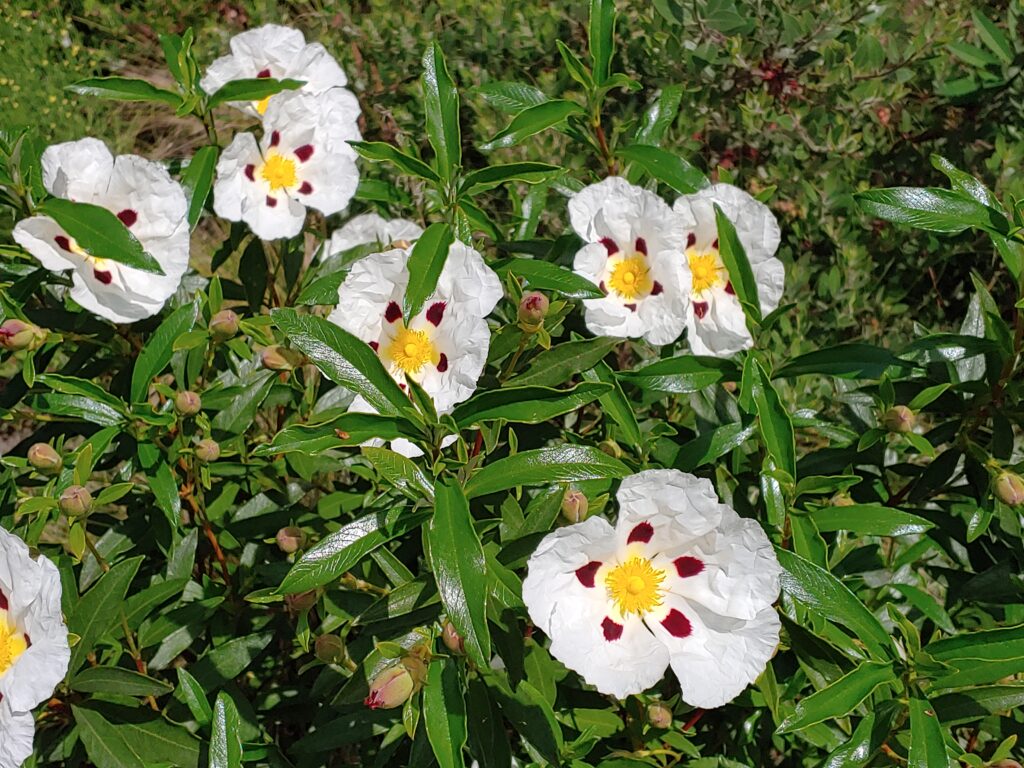The alert is issued by a team constituted by the professors Maria Margarida Ribeiro and Paulo Fernandez and the researchers Miguel Ferreira, Alice Almeida and Natália Roque from the Polytechnic Institute of Castelo Branco and Celestino Quintela-Sabarís from the University of Santiago de Compostela, that recently published an article entitled “The role of littoral cliffs in the niche delimitation on a micro endemic plant facing climate change” in the renowned scientific journal PLOS ONE: https://journals.plos.org/plosone/article?id=10.1371/journal.pone.0258976. The study predicts a sharp decrease of adequate habitat for the subspecies sulcatus of the rockrose (Cistus ladanifer) in the next 50 years due to climate change.
The ecological niche model produced for this plant also allowed to confirm its strict dependency on the coastal cliffs that exist along the southwestern coast of mainland Portugal. This is the only place where it occurs, from Vila Nova de Milfontes to Burgau, in the county of Vila do Bispo, at a maximum distance of 5 km from the sea, which justifies its protection at European level through the Annexes II and IV of the Habitats Directive of the Natura 2000 Network.
“Climate change will radically change the conditions of the habitat of this plant, although there are additional challenges. Human pressure, especially by tourism and the agriculture intensification that has taken place in recent years mostly in the region of Odemira, could favour habitat loss that, in the medium and long term, will result in an increase of the probability of extinction of this unique lineage.” says Miguel Ferreira, first author of the study.
The work was financed by the Foundation for Science and Technology and by the European Regional Development Fund, through the co-funders Regional Operational Programme Centro 2020, Portugal 2020 and the European Union, over the projects CULTIVAR CENTRO-01-0145-FEDER-000020 e C4 – Centro de Competências em Cloud Computing CENTRO-01-0145-FEDER-000019.


Evan Bean (Flickr) 
Rota Vicentina (Flickr)




